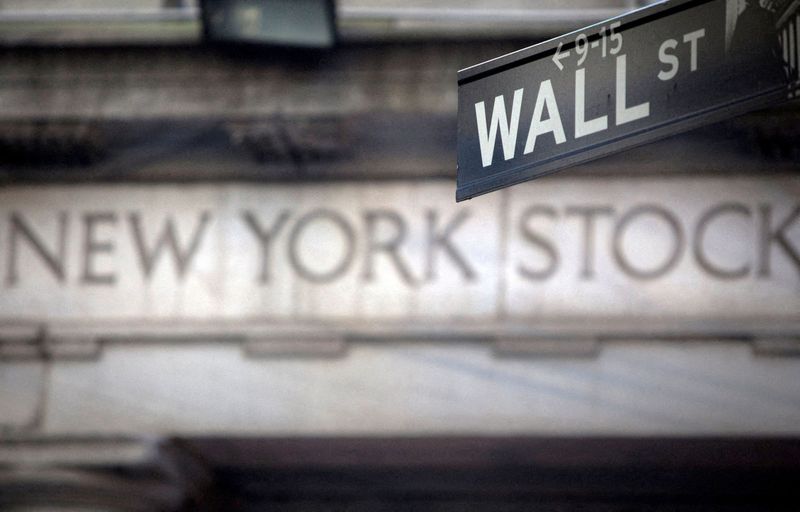By Pamela Barbaglia and Anirban Sen
LONDON/NEW YORK (Reuters) - Global dealmaking is entering an arid season as raging inflation and a stock market rout curb the appetite of many corporate boards to expand through acquisitions.
Russia's invasion of Ukraine in February and fears that an economic recession is looming dealt a blow to merger and acquisition (M&A) activity in the second quarter.
The value of announced deals dropped 25.5% year-on-year to $1 trillion, according to Dealogic data.
"Companies are standing back from M&A in the short term as they are more focused on the impact of a recession on their business. The timing for dealmaking will come but I don't think it's quite there yet," said Alison Harding-Jones, Citigroup Inc (NYSE:C)'s EMEA M&A head.
M&A activity in the United States plunged 40% to $456 billion in the second quarter, while Asia Pacific was down 10%, Dealogic data showed.
Europe was the only region where dealmaking didn't crash. Activity was up 6.5% in the quarter, largely driven by a frenzy of private equity deals, including a 58 billion euro ($61 billion) take-private bid by the Benetton family and U.S. buyout fund Blackstone (NYSE:BX) for Italian infrastructure group Atlantia.
Proceeds from global listings were down 84% to $33 billion in the second quarter, according to Dealogic, with only 274 companies attempting to raise cash via an initial public offering (IPO) compared to 852 in the same quarter last year.
"We are nervous about the back half of the year but transactions are still happening," said Mark Shafir, global co-head of M&A at Citigroup.
The largest deal of the quarter was Broadcom (NASDAQ:AVGO) Inc's $61-billion cash-and-stock buyout of VMWare Inc in the United States.
Others included Elon Musk's proposed acquisition of Twitter (NYSE:TWTR) for $44 billion and a move by India's largest private lender HDFC Bank to buy out its biggest shareholder in a $40 billion deal to create a financial services titan to tap rising demand for credit.
With stock markets facing persistent turmoil, boardrooms are wary of making expensive bets.
"We are unlikely to see a large number of megadeals and buyouts getting done over the next couple of quarters. M&A is hard to do when companies are trading at a 52-week low," said Marc Cooper, chief executive of U.S. advisory firm Solomon Partners.
Cross-border transaction volume dropped 25.5% in the first six months of the year. A traditional flurry of U.S. investments in Europe did not occur in the wake of the Russia-Ukraine conflict.
Philip Morris International Inc (NYSE:PM)'s $16 billion bid for smaller rival Swedish Match was the only notable cross-border exception in a quarter dominated by domestic dealmaking.
"When you think about the psychology of executives and their level of confidence to make a leap across borders, you need to take into account the level of uncertainty in the world and how that impacts timing," said Andre Kelleners, head of EMEA M&A at Goldman Sachs Group Inc (NYSE:GS).
For an interactive version of the Reuters chart showing global M&A and private equity volumes in the second quarter click here: https://graphics.reuters.com/GLOBALQ2-REVIEW/dwpkrmjlnvm/Q2DEALS1.1.gif
Acquisition financing has become more expensive for companies as central banks have hiked interest rates to fight inflation.
Even those that have the cash to undertake a deal - or are using their shares as currency - find it hard to agree on price in choppy markets.
"Stock market volatility is a big headwind to strategic M&A. When you have stock market volatility, it's tough to have value conversations and makes it hard to use stock as currency," said Damien Zoubek, co-head of U.S. corporate practice and M&A at Freshfields Bruckhaus Deringer.
In Europe, sharp falls in the value of the euro and the pound made companies vulnerable to opportunistic overtures by private equity investors.
Buyout funds have been a major driver of global dealmaking, generating transactions worth $674 billion so far this year.
"Market dislocation offers a window of opportunity to private equity funds as valuations are coming down," said Umberto Giacometti, co-head of Nomura's EMEA financial sponsors group.
"There is lots of screening work under way on listed companies for both take-private deals and stake acquisitions in public companies. But without a price adjustment, activity cannot properly resume," Giacometti said.
He predicted the average size of private equity deals will shrink as banks close the taps on financing and private credit funds become wary of signing big checks.
Going forward, dealmakers expect cross-border transactions between the United States and Europe to pick up eventually, on the back of a strong dollar and a widening gap between the valuation of U.S. and European companies.
"With a slightly elevated level of visibility than what we had earlier this year, you could expect capital flows to resume and deal activity to pick up, including on the financing side," said Goldman's Kelleners.
But caution prevails as companies are still seeking to sever their ties with Russia or limit their exposure to the region.

"Clients are increasingly looking inward rather than outward," said Citigroup's Harding-Jones.
($1 = 0.9508 euros)